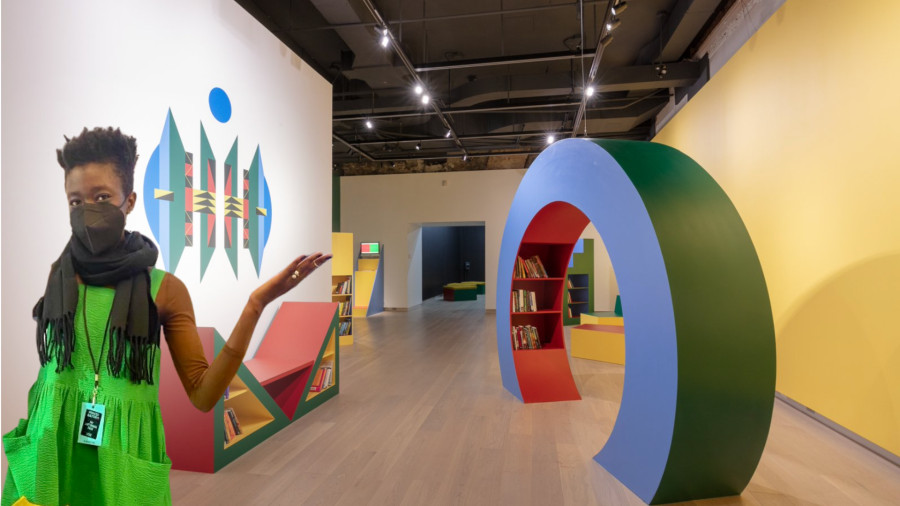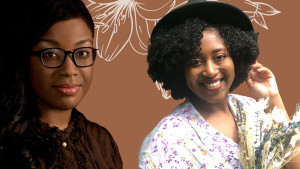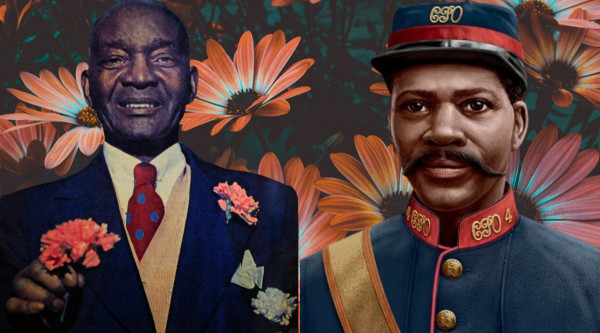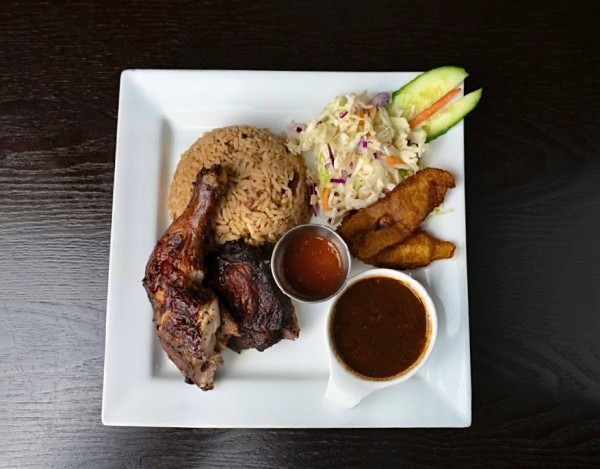The platform was first conceptualized in the fall of 2017 with a project called Black Libraries Matter by Montreal-based artist Shaya Ishaq during her residency at the Khyber Centre for the Arts in Halifax, Nova Scotia. In partnership with North Branch Memorial Library, Ishaq curated a space filled with books, music, and film by Afro-Diasporic creators.
“There are many ways we can poetically speak to our presence as Black diasporic people without necessarily saying ‘Black lives matter.’ So, I was trying to find new ways to talk about the space we can take up,” says Ishaq.
During the summer of 2021, Ishaq repurposed Black Libraries Matter into the Library of Infinities, a solo exhibit at the SAW Gallery in Ottawa, Ontario. The exhibit featured a library designed by Ishaq, who commissioned the Ottawa City Woodshop to construct it. The finished library hosted a selection of Afro-diasporic media and served as a community space for reading groups and film screenings.
During the exhibit, Ishaq and her team digitized the Library of Infinities by launching a beta version of the website. After working through minor kinks, the team prepared the latest version of the website and put out a call for user testers on social media. Participants received $25 gift cards to Black-owned, Montreal-based Libraire Racines.
On October 11, the website’s official version was launched. There are already several posts on the website, including a submission by artist and writer nènè myriam konaté that reflects on the impact of Homegoing, a book by Ghanaian-American novelist Yaa Gyasi.
“Every submission is reviewed on the back end to protect the sanctity of the space and prioritize Black perspectives,” says Ishaq.
“[The submission function] gives people agency to be a part of something bigger than themselves.”
At the Printed Matter’s 2022 Art Book Fair in New York City, Ishaq celebrated the website’s launch and its cultural significance.
“The database liberates the minds of future readers by letting them know that there's more than one story in which we can find beauty.”
Historically, Black literacy was viewed as a threat to white supremacy. Enslaved people found writing, reading or possessing literature were severely punished–even by death. Laws were written to restrict Black people from having access to books because as abolitionist leader Frederick Douglass is often quoted as saying, “knowledge is the pathway from slavery to freedom.” As a result, Black people had to read and write in secret.
In Canada, former poet laureate George Elliot Clarke found it challenging to research Canada’s first Black writers for his book Locating Home: The First African-Canadian Novel and Verse Collections due to systemic anti-Blackness hindering publication.
Locating Home features Anna Minerva Henderson, the first Black Canadian woman to publish literature. Henderson began writing in the 1930s and started her poetry book in 1947. The book wasn’t officially published until 1967, when she was eighty years old.
Accessing Afro-diasporic literature is empowering, and Ishaq says she is grateful she read A Song Flew up from Heaven by Maya Angelou. She said it reminded her of the strength and vulnerability it takes to fully commit to liberatory work.
“I encourage people to make a submission,” says Ishaq. “We’d like to see the database grow, and that can only happen if folks feel welcome enough to do so.”
Interested in submitting to the archive? Check out libraryofinfinities.com, and don’t forget to follow @_libraryofinfinities on Instagram!

 By
By 








